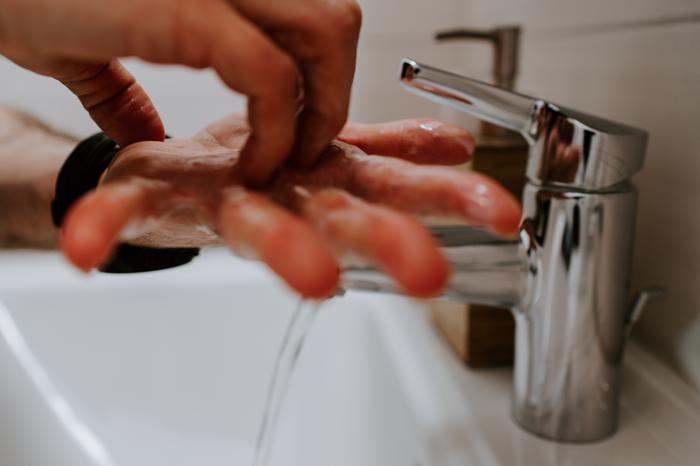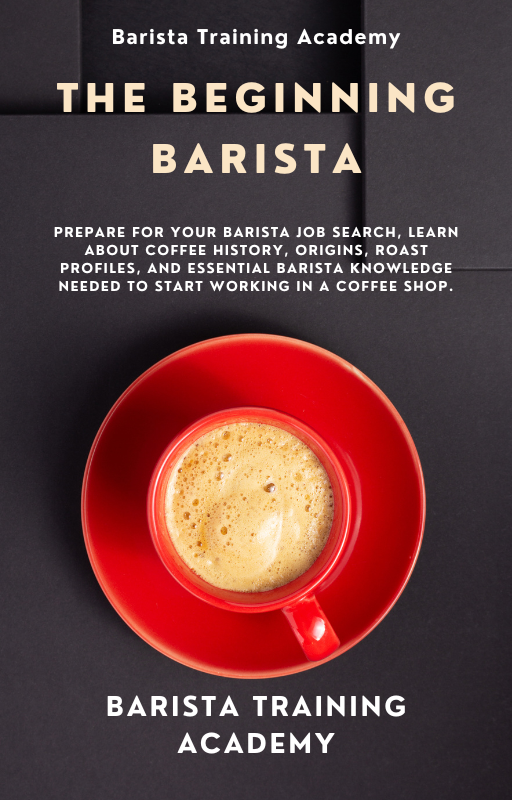Barista During The Coronavirus
10 Things You Can Do As a Barista During The Coronavirus Pandemic
Coronavirus infection is affecting many people and businesses all over the world. Some people infected with Coronavirus, otherwise known as COVID-19, experience light symptoms like mild headaches and soon recover, while others can develop severe symptoms and need medical assistance. With the coronavirus outbreak in the U.S., it's important for coffee shops and baristas to protect themselves, their customers, relatives, and friends.
Many states and cities have taken local measures to handle the coronavirus epidemic. However, we should also make individual efforts to prevent coronavirus transmission to other people and us.
Depending on where you are at this moment, local health and political leaders are trying various methods to shut this virus down. For example, if you work as a barista in a high-impact area, the chances are high that your coffee shop will be impacted – either through a mandated quarantine or a reduction in hours and sales methods.
It's a tough call to work during a pandemic and make no money. But, no matter what's going on, rent and bills are all coming due. We hope that you and your loved ones stay healthy and safe.
If you happen to work during the pandemic, you can take certain safety precautions as a barista.
What a Barista Can Do to Fight Coronavirus
Measure 1. Wash your hands frequently.
World Health Organization's number 1 recommendation is to wash your hands more often. As a barista, you are supposed to wash your hands frequently since you are working with food and drinks, and you are required to follow safety measures to prevent food-borne illnesses. However, washing your hands is extra warranted when it comes to a global pandemic. Washing your hands with warm water and soap cleans the skin where viruses and bacteria reside. You might also review if you wash your hands the right way outlined by the Center for Disease Control and Prevention page.
Correct hand-washing technique:
- Wet your hands with warm running water
- Apply soap and wash the palms of your hands and the back of your hands
- Lather your hands between your fingers, rub your nails
- Continue washing your hands for 20 seconds
- Rinse your hands with clean running water
- Use a clean towel or disposable napkin to dry your hands
Wash your hands every time:
- Before you start your barista shift
- Before you prepare drinks or food
- Before meals
- After preparing drinks and food
- After holding money of any kind
- After using restroom
- After caring for the sick
- After you or someone around you sneezes, coughs, or blows their nose
- After touching trash
- After petting animals
- After cleaning surfaces such as counters and tables

Measure 2. Apply hand sanitizers.
Apply alcohol-based (at least 60%) hand sanitizers. Alcohol kills the most known germs and viruses. However, it might dry your hands or cause allergic reactions. As soon as you have a chance, wash your hands with soap and clean water.
Measure 3. If you feel sick, stay at home!
If you show any symptoms of the common cold – it may or not be Coronavirus, but you should act with caution. You love being a barista because it's a social job, but this advantage turns into a disadvantage in times of pandemic. You work close to other baristas and your coffee shop clients who might carry a virus or receive it from you. So staying home is a sure way to prevent the disease's spread and lessen the burden on our medical system.
If you see that other baristas show mild symptoms like dry cough or fever, tell them to go home and talk to your manager or coffee shop owner immediately.
Measure 4. Reduce physical contact.
Even though Coronavirus is a respiratory virus (transmitted by air through your mouth, nose, eyes), it can be passed by shaking hands with an infected person and then touching your mouth, nose, and eyes. Use safe greetings like a wave, nod, or Vulcan salute.
Measure 5. Respiratory hygiene.
It's a good idea to keep at least a distance of 6 feet from other people, especially those coughing or sneezing. Cover your mouth or nose with your elbow or clean tissue if you cough or sneeze yourself. The droplets of water containing the virus stay on the tissue, so throw it away immediately in a closed bin.
Measure 6. Don't touch your face.
As a barista, you encounter many surfaces like money, your POS-system, table-tops, chairs, etc., that may have viruses on them. If you happen to touch an infected surface, you can then transfer the virus to your body through your mouth, nose, or eyes.
Measure 7. Wipe down surfaces often.
We know that viruses can gather on various surfaces, which leads us to the next step. Wipe down and clean the characters in your coffee shop with sanitary products. This will allow you and your customers to stay safe and not pick up any disease.
Measure 8. Don't fill up personal cups.
Corporate and independent coffee shops like Starbucks and others have stopped filling up reusable personal cups to minimize coronavirus outbreak effects. Post clear visible signs that your coffee shop has temporarily stopped filling up personal cups and mugs and thank your customers for their understanding.
Measure 9. Don't share cups during coffee cuppings.
For the same reason as above, stop sharing cups for cupping coffee and other utensils like spoons. Again, this will decrease the chances of virus transmission from one barista to another.
Wash coffee cups in hot water with a dishwashing liquid or a dishwashing machine.
Measure 10. Avoid public gatherings or traveling.
Even if you still need to work, limit your social life to only work and home, and don't go to public events, conferences, meetings, or parades. Large events contribute to the spread of Coronavirus since people are very close to each other.
Airports and bus or train stations have a high volume of people moving daily and many surfaces you can touch. Airplanes use a mixture of fresh and recirculated air. If Coronavirus gets into the air-conditioning system, it will circulate there until the end of the flight and make many people sick. You don't want to pick up a virus while traveling.
Here's an informative article published by the New York Times for more information.
Being a Barista During The Coronavirus Pandemic
Be Safe and Sensible Barista
Coronavirus outbreak is not a reason for racial or other types of discrimination. Even though the epidemic sparks xenophobia, you should stay tolerant and take the measures discussed in this article. Good customer service and respect for everyone are always important. In addition, you want to keep your working environment welcoming and free of any stigmas or prejudices.
Remember, the coronavirus incubation period – the period between you contact a virus and have the first symptoms – is up to 14, which means you might not show any symptoms as long as for two weeks. After that, you might not even know about it! However, the Coronavirus might be transmitted to other people during the incubation period.
Brought to you by Barista Training Academy, “The Beginning Barista,” Your Ultimate Prep Guide to Getting Your First Job as a Barista” is an ultimate resource that is available online. It is affordable for anybody looking to start a career in the coffee industry. For more information, visit our blog.
